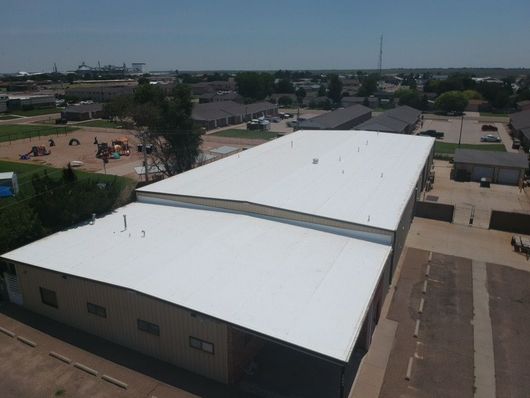Selecting the right industrial roofing system is key to protecting your property and ensuring long-term durability. Whether installing a new roof or maintaining an existing one, knowing your options and their benefits can save you time, money, and stress. Here’s what you need to know about industrial roofing.
Key Considerations for Industrial Roofing Projects
Because industrial roofing projects are complex, understanding the unique requirements of your property is essential. Here are the key factors to consider:
- Building Use: Understanding the function of your building is key—whether it requires heat resistance, weatherproofing, or soundproofing. This will guide the selection of the best roofing system.
- Environmental Conditions: Local weather conditions like temperature extremes, heavy rainfall, or snow can impact roof material performance. Choose a roofing system that can withstand your area’s climate.
- Budget: Budgeting is essential when considering industrial roofing, as it’s a substantial investment. Find a balance between quality and cost to maximize your value.
- Energy Efficiency: Choosing energy-efficient roofing can reduce long-term utility costs. Consider materials that help improve insulation and lower heating and cooling expenses.
Types of Industrial Roofs: Built-Up, Metal, and Modified Bitumen
Various industrial roofing systems are available, each with unique benefits depending on the requirements of your building. Here are the most common types.
Built-Up Roofs (BUR)
Built-up roofing systems are made of multiple layers of materials, typically tar and gravel, providing excellent waterproofing. BUR is durable, offers good insulation, and can handle harsh weather conditions, making it ideal for large industrial buildings. However, the installation process can be lengthy and labor-intensive.
Metal Roofs
Metal roofs are widely used in industrial settings because of their durability and low maintenance. They withstand harsh weather conditions and are energy-efficient, reflecting sunlight to cut cooling costs. Various materials, such as steel and aluminum, are available.
Modified Bitumen Roofs
Modified bitumen is a hybrid material that combines asphalt and rubber or plastic, offering flexibility and long-term durability. It is ideal for low-slope industrial roofs and can be installed using heat or cold methods.
Maintenance Tips to Extend the Life of Your Industrial Roof
Routine maintenance is vital to ensuring your industrial roof lasts longer and avoids expensive repairs. Here’s how to maintain your roof effectively:
- Regular Inspections: Regular inspections by professionals can help detect early issues like cracks, leaks, or debris accumulation before they turn into major problems.
- Clean Gutters and Drains: Ensure gutters and drains are clear of debris to prevent water buildup, which can lead to roof damage.
- Prompt Repairs: Fix any roofing issues immediately to avoid worsening damage. Delaying repairs could lead to costlier problems down the road.
- Coating and Sealing: Applying a protective coating to your roof can help prevent moisture penetration and UV damage, extending its lifespan.
Why Working with an Expert Roofing Contractor Is Crucial for Industrial Projects
Hiring a specialized roofing contractor is essential for ensuring your roof is installed correctly and maintained properly. Experts can help you choose materials, manage the project, and provide long-term support.
Conclusion: Choosing the Right Roofing for Your Business
Selecting the right industrial roof is key to safeguarding your property and ensuring it lasts long-term. Understanding your options—BUR, metal, or modified bitumen—will guide your decision. With a specialized contractor, you can ensure optimal installation and maintenance for years of protection.
Looking for a trusted roofing partner for your industrial needs? Reach out to us today for tailored roofing solutions and expert guidance!

#IndustrialRoofing #CommercialRoofing #RoofInstallation #BuiltUpRoof #MetalRoofing #ModifiedBitumen #RoofMaintenance #EnergyEfficientRoofing